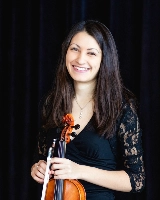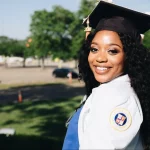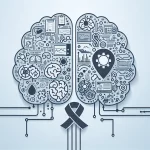Why Are You Passionate About Music?
To explore the profound passion for music, we’ve gathered seven unique perspectives from professionals in the field, including Music Therapists and Professors of Music Education. Their insights range from viewing music as a lifelong gift and educational tool to considering it a source of joy and community. Dive into these heartfelt responses and discover why music holds such a special place in their lives.
- A Lifelong Gift and Educational Tool
- Therapeutic Power of Music
- A Universal Emotional Connector
- Shared Joy and Connection through Music
- Personal Expression and Connection
- Music’s Transformative Role in Visual Storytelling
- A Source of Joy and Community
A Lifelong Gift and Educational Tool
Music is a gift. At the age of 4, I fell in love with singing and playing various instruments. Music provided me a way of positive expression. As I grew up, I knew that I wanted to be an educator and to share my love of music with others.
I see children’s trajectory change academically through the integration of music in curriculums. I see the healing power of music through therapy. I see how music provides emotional stability for those who lack communication skills. I see how music makes the world more unified and much less separated.
Music is my gift from God to share with others to experience the love that music has to offer us all. Music helps us, as humans, develop a plethora of skills that better us emotionally, physically, and spiritually. Music is the key to unlock many doors. This is why I am passionate about music.
Alnesica Waters, MAEd
K-5 Music and Middle Grades Performing Arts Director, National Heritage Academies
Therapeutic Power of Music
I’m not sure I know anyone who isn’t passionate about music in some form or another. As a music therapist, I’m passionate about it because of its capacity to address the needs of so many people and populations.
I have worked in the psychiatric ward of a women’s prison, a halfway house for women with substance use disorders, and I regularly work with children and adults with developmental disabilities and chronic medical illnesses. The fact that one tool can address the needs and goals of so many different people is astounding.
Whether we are playing the keyboard to work on fine motor skills, playing drums in various positions to work on neurologic crossing the midline, or talking through the lyrics of songs that resonate with someone, it opens the door to rapport, growth, and healing.
On a more personal level, I use music to help me understand my own emotions when they’re out of reach. Simply sitting down at my piano and singing for a while does wonders.
Colleen McDonough
Music Therapist, The Child and Family Therapy Center of Denver
A Universal Emotional Connector
Music is one of the purest forms of energy. It connects people from all backgrounds and walks of life. Music transcends our differences and provides a common ground for people to grow in love and understanding. It provides a safe space for people to express their feelings of joy, love, hope, anger, sorrow, loss, or any feeling on the spectrum. It also provides healing and hope to all who are willing to open their ears and hearts to its melody.
Ciaran Sontag
Music Teacher, North Florida School of Special Education
Shared Joy and Connection through Music
Music brings us together. It is a universal language that translates experiences, feelings, and ideas into something that can be shared. Music makes us dance, move, sing, and connect with ourselves and each other. To share the joy and emotions of music and create these connections is exceptionally meaningful.
 Jocelyn Pettit
Jocelyn Pettit
Musician, Music Teacher, Performer, Composer, Jocelyn Pettit Music
Personal Expression and Connection
I’ve always loved music, but at university, while studying jazz, I was introduced to free improvisation and my whole sonic world changed. Free improvisation is simply playing an instrument or singing following no written music. It’s the way we first experience music, humming a little made-up tune as children, or listening to the rhythms and melodies of the world. It is birdsong, distant construction, the movement of water, our mother’s heartbeat.
For me, playing freely is experiencing music in its purest, most rewarding form. It is a meditation that takes me away from the daily grind of my life as a freelance musician. The music is for me, and for no one else. There is no critic, no social media feed, no image to uphold, and it reminds me why I am compelled to make music in the first place. Music is how I choose to express my own personal truth, and in turn, connect with the personal parts of others, either fellow players or listeners.
 Erica Bramham
Erica Bramham
Musician, Composer, Writer and Music Educator, Freelance
Music’s Transformative Role in Visual Storytelling
I work in the field of video production and video advertising. Despite being a visual medium, music is perhaps just as important when producing our content. I’m passionate about how music can completely transform a visual or a story. It can create a mood, elicit emotions, or subvert expectations. With such a broad range of styles to choose from, selecting music for a film is one of my favorite parts of the creative process.
 Ryan Stone
Ryan Stone
Founder and Creative Director, Lambda Films
A Source of Joy and Community
Music connects to my soul and brings joy to my life. It lifts me up when I am down and soothes me when I’m distressed. Music allows me to build a community with others and share laughter and happiness. I can be creative and be myself through music. As a music-education professor, I help future music teachers learn how to bring music into children’s lives.
Martina Vasil
Associate Professor of Music Education
Submit Your Answer
Would you like to submit an alternate answer to the question, “Why are you passionate about music?”






